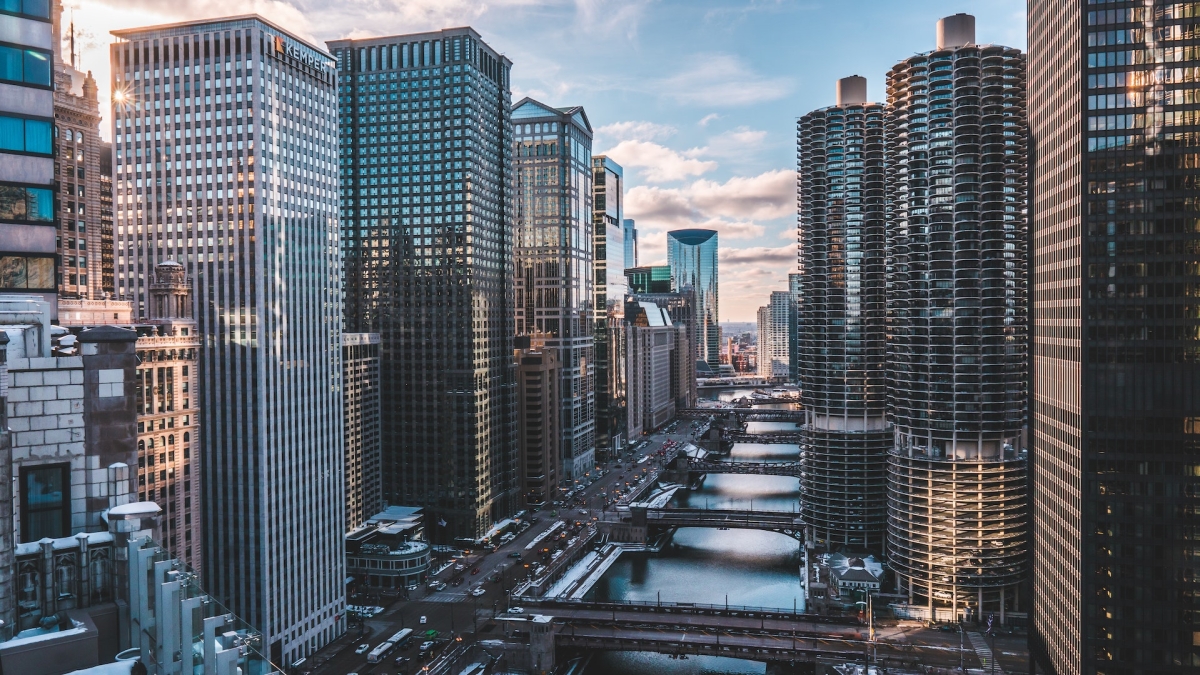This month, a group of 19 students and recent graduates is headed to Chicago for the largest and most influential geoscientists conference in the world.
The trip is a key component of FLAGSHIP, otherwise known as the Future Leaders and Geoscience High-Road Internship Program, which is based at Arizona State University’s New College of Interdisciplinary Arts and Sciences.
Now in its second year, FLAGSHIP is a national initiative providing real-world career pathways to students and others who are historically underrepresented in the sciences. The 10-week program is sponsored by the National Science Foundation.
“It’s an amazing program that helped me build experience, a network and gain the necessary tools to succeed,” said Monica Ortiz, who is studying environmental science at ASU and who said it's especially hard for women of color to gain opportunities like this in STEM. “I am very thankful.”
The American Geophysical Union conference in Chicago runs Dec. 12–16 and gathers researchers, scientists, educators and policymakers from around the world for one purpose — preserving the planet.
Students will not just attend the conference, but also join the other professionals in presenting their research.
Vernon Morris
“We want to ensure that students of color have full access to professional meetings,” said Vernon Morris, founder of the FLAGSHIP program and director and professor at ASU’s School of Mathematical and Natural Sciences.
Morris said attending the conferences is “not just to look at people and say, 'Oh, those are what professionals look like.’ But to actually be a presenter — share knowledge on a panel and engage with people.”
Program is a professional plan
FLAGSHIP is an experimental program based on an equity-centered educational model. Participants come from a diverse group of disciplinary backgrounds, including environmental science, geoscience, engineering, public health and even English. They are studying at academic institutions throughout the country.
FLAGSHIP works closely with the American Geophysical Union's Thriving Earth Exchange, where students work with scientists to address local environment challenges such as climate change and natural hazards.
During the 2022 internship, students choose from a broad selection of projects including:
Wetland management in the Chicago region (related to stormwater runoff and flooding of communities).
Responding to sea level rise in the San Francisco area (relating to shoreline management for vulnerable communities).
Green infrastructure for a more resilient New Orleans (relevant to flooding and drainage).
Power grid management and resiliency in Chicago (relating to decarbonization).
At the conference, cohorts will present the research from these projects and connect with leaders, educators and even prospective employees. Morris says the collective intellectual capital at the conference represents nearly 10,000 years of experience.
“The program is really about creating access points,” Morris said.
Looking foward
Attending the conference is a significant opportunity, but it is not the finish line.
After working on research projects and presenting them, students learn how to package their knowledge and experience in what Morris describes as a “professional wraparound.”
That means stronger and more competitive resumes and applications for summer projects and scholarships.
“We professionalize students and provide on-ramps to help them develop their social capital on one hand, and on the other hand, we make sure that leads them into the workforce,” said Morris, who has spent his entire career helping students.
Morris joined ASU’s New College in July 2020. He is passionate about increasing opportunities for underrepresented groups in science, technology, engineering and mathematics. His outreach programs have reached more than 50,000 students worldwide.
FLAGSHIP, one of his most recent initiatives, collaborates with many professional groups. These collaborations become career connections for FLAGSHIP participants.
“We are not just handing a person a rung," Morris said. "We are helping build their ladder to success.”
FLAGSHIP will be accepting applications for their next 10-week session through September 2023.
Top photo: Students from ASU FLAGSHIP will be presenting their research at a conference in Chicago this December. Photo courtesy Pexels
More Science and technology

Study reveals genetic insight into desert survival
The deserts of the American Southwest are home to the Mojave and Sonoran desert tortoises, two seemingly similar yet genetically distinct species of turtles. These tortoises, adapted to different…

Study reveals lasting effects of common weed killer on brain health
Environmental exposure to toxins in the air, water or certain chemicals can increase the risk of ill health effects, including to the human brain.The human brain is an incredibly adaptable organ,…

ASU grad to use science to get an edge on crime
Editor’s note: This story is part of a series of profiles of notable fall 2024 graduates.As a child growing up in Pinetop, Arizona, Giavanna Caruth's family experienced a tragic loss in the early…
